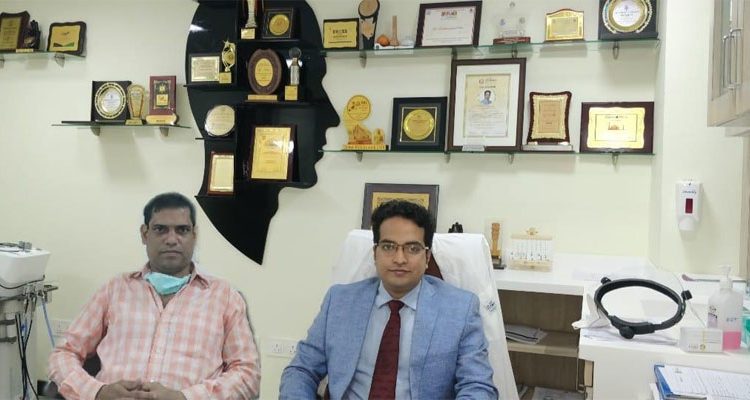THE RARE SURGERY DONE AT SUM ULTIMATE MEDICARE BY SKULL BASE SURGERY EXPERT
Bhubaneswar(Kalinga Voice) : A very rare vascular tumor was removed from the sinonasal cavity of a middle-aged man adjoining the brain using the minimally invasive method at the SUM Ultimate Medicare.
The trans nasal endoscopic skull base surgery was conducted recently by Dr. Radhamadhab Sahu, Head of ENT and Skull Base Surgery in the hospital on Mr. Panchanan Panigrahi (45) who had developed the tumor in the nasal cavity involving the anterior cranial base through cribriform plate area where the nerve for olfaction (smell) enters the brain.
The patient had come for relief, having experienced multiple episodes of nasal bleeding accompanied by headache and loss of smell in the same nostril. The investigation suggested that surgery was necessary to address the patient’s condition.
Speaking on the tumor, Dr. Sahu said, “Glomangiopericytoma(GPC) is a rare neoplasm with 0.5 percent incidence among all neoplasms of the sinonasal cavity. This highly vascular tumor originates from the pericytes of small blood vessels and has a high incidence of recurrence if not excised completely”. The procedure enabled the surgeon to remove a golf ball size rare vascular tumor (known as Glomangiopericytoma or GPC) endoscopically without embolization.
The surgeon said the etiology of GPC remained unknown. However, past trauma, hypertension, pregnancy, and the use of corticosteroids are believed to be predisposing factors. The open extra nasal treatment has been traditionally performed for management but has a very high recurrence rate, he added.
“Recent advancements in minimal invasive endoscopic treatment have transformed the scenario towards scarless surgery and ensure complete resection,” Dr. Sahu said.
Dr. Sahu is one of the few trained skull base surgeons and pioneers in this field and heads the Centre of Excellence for Cranial Base Surgery at SUM Ultimate Medicare. He has conducted several similar and challenging procedures through the transnasal route in the recent past.

